



VALERIANA
Valerian
Valerian is a well-known plant that is used for the treatment of nervous disorders. The most characteristic components of valerian are obtained from its roots: valepotriates and valerenic acids. These acids have a unique, penetrating, and unpleasant odor reminiscent of foot perspiration.
Properties
There is evidence that associates the use of valerian to circumstances that lead people to a state of imbalance in the most diverse activities, such as:1) A hectic daily life that does not allow you to sleep well.
2) Conduct disorders with manifestations of anguish, inner tension and irritability.
3) Before exams and crises at work.
4) Nervousness and restlessness caused by the environment where people live in.
There are studies that indicate that valerian shows a relaxation of the entire CNS (Central Nervous System) and vegetative system.
Formula
Nutritional Information
Presentation
40 tablets
Recommended intake
Take 1 to 3 tablets a day, preferably at the following times: 1 tablet before lunch and 1 or 2 tablets 1 hour before bedtime.
Contraindications
Biographic reference
› Bent S. y otros. Valeriana para dormir: una revisión y análisis estadístico sistemático. American journal of medicine vol. 119,12 (2006): 1005-12. Disponible en: https://www.ncbi.nlm.nih.gov/pmc/articles/PMC4394901/pdf/nihms455706.pdf.› Fernández-San-Martín M.I., Masa-Font R., Palacios-Soler L., Sancho-Gómez P., Calbó-Caldentey C., Flores-Mateo G. Efectividad de la valeriana para el insomnio: un análisis estadístico de ensayos aleatorios controlados versus placebos. Sleep Med. (2010); 11(6): 505-11. Disponible en: https://www.ncbi.nlm.nih.gov/pubmed/20347389.
› Salter S., Brownie S. Tratamiento primario del insomnio: la eficacia de la valeriana y el lúpulo. Aust Fam Physician. (2010); 39 (6): 433-7. Disponible en: https://www.racgp.org.au/afp/201006/37659.
› Ziegler G., Ploch M., Miettinen-Baumann A. Eficacia y tolerabilidad del extracto de valeriana LI156 en comparación con oxazepam en el tratamiento del insomnio no orgánico: un estudio clínico aleatorizado, doble ciego, comparativo. Eur J Med Res (2002); 7: 480–6. Disponible en: https://www.ncbi.nlm.nih.gov/pubmed/12568976
› Leathwood P.D., Chauffard F., Heck E., Munoz-Box R. El extracto acuoso de raíz de valeriana (Valeriana officinalis L.) mejora la calidad del sueño en las personas. Pharmacol Biochem Behav. (1982); 17: 65–71. Disponible en: https://www.ncbi.nlm.nih.gov/pubmed/7122669.
› Houghton P.J. La base científica de la renombrada actividad de la valeriana. Journal Pharm Pharmacol. (1999); 51(5): 505-12. Disponible en: https://onlinelibrary.wiley.com/doi/abs/10.1211/ 0022357991772772.
› Diaper A., Hindmarch I. Una investigación doble ciego controlada por placebo de los efectos de dos dosis de una preparación de valeriana en el sueño, la función cognitiva y psicomotora de adultos mayores con trastornos del sueño. Phytother Res. (2004); 18(10): 831-6. Disponible en: https://www.ncbi.nl

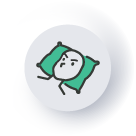
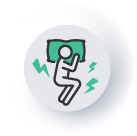
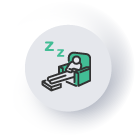
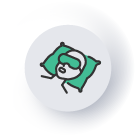
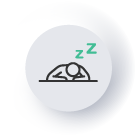

 Where can I find them?
Where can I find them?